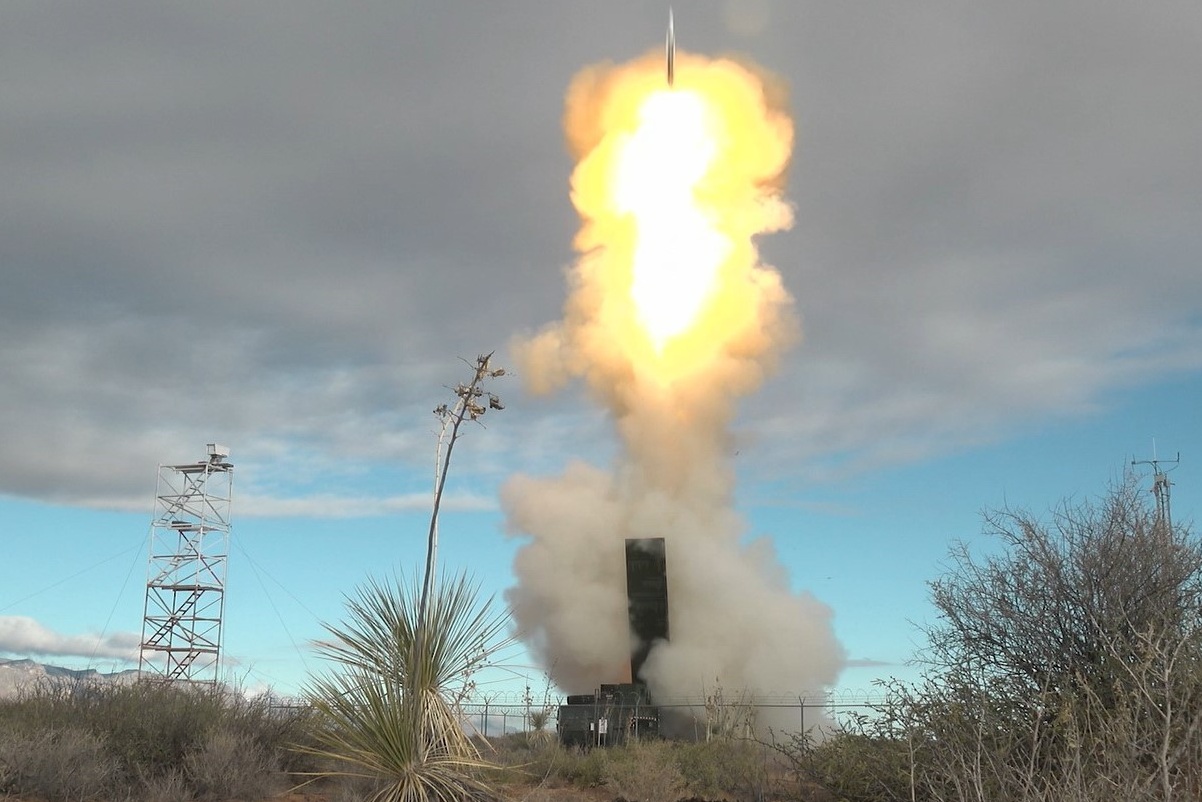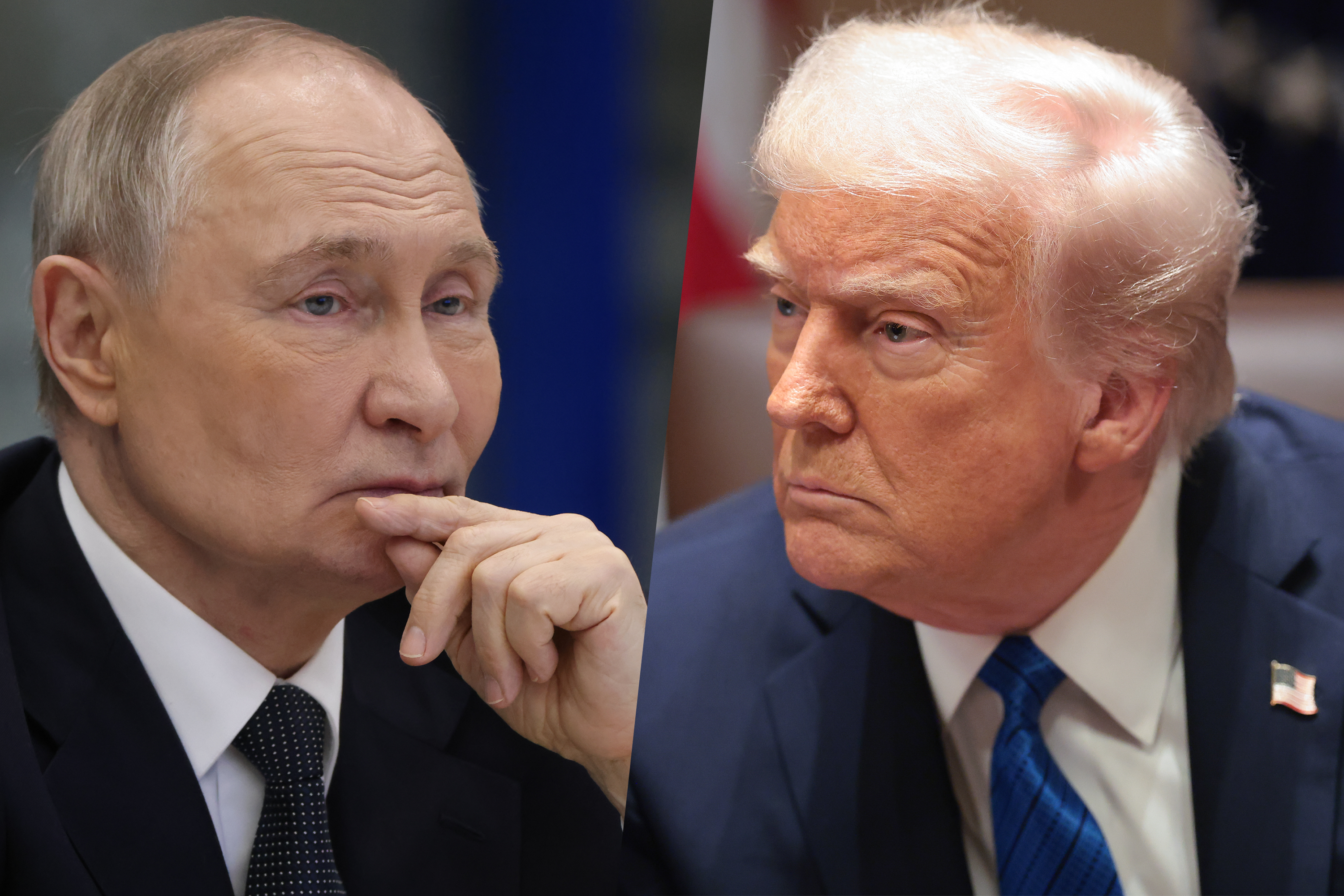China on Tuesday warned the Philippines of "playing with fire" in its military cooperation with its treaty ally, the United States, claiming the risk of escalating tensions in the region.
Newsweek has contacted the Pentagon and the Philippine military for comment by email.
Why It Matters
China has territorial disputes over the South China Sea with the Philippines, where their maritime forces have engaged in standoffs or clashes. The U.S. is committed to the security of its Southeast Asian ally as they are the signatories of a mutual defense treaty.
Since April last year, the U.S. Army has deployed a Mid-Range Capability (MRC) missile system, also known as Typhon, in the Philippines. It can hit targets as far as 1,000 miles away, putting the east and south coasts of China within its range, a Newsweek map shows.
There is no sign of the U.S. missile system being withdrawn as the allies have decided to keep it in the Philippines "indefinitely." China has denounced the deployment of the so-called strategic offensive weapon as a "highly dangerous move."
What To Know
Any defense or security cooperation between the Philippines and other countries, including the U.S., "should not target any third party or harm their interest," said Guo Jiakun, spokesperson for the Chinese Foreign Ministry, during a press conference in Beijing.
The Chinese official was asked to comment on the remarks made by Manila's ambassador in Washington, Jose Manuel Romualdez, who claimed that the Philippines seeks to benefit from its allies in modernizing its military power to prepare for potential regional conflicts.
In addition to the U.S., the Philippines has enhanced its military cooperation with Japan and Australia, which are also the allies of Washington in the Indo-Pacific region. All four nations have organized joint war games in the contested waters bordering the Philippines.
"Facts have repeatedly proven that nothing good could come out of opening the door to a predator," said Guo, in a translation provided by the Chinese Foreign Ministry. The original remarks in Chinese were: "Inviting a wolf into the house is like playing with fire."

Newsweek has reached out to the Chinese Foreign Ministry for further comment by email.
Beijing's comments on the U.S.-Philippines alliance come as U.S. Defense Secretary Pete Hegseth makes a scheduled visit to the Philippines. The Pentagon said he will "advance security objectives" with the leaders of the country and meet with American and Philippine forces.
With regard to the American missile system's deployment in the country, the Philippine military on Tuesday said it welcomed the report of a second U.S. Army unit that operates the MRC is being prepared for deployment in the Indo-Pacific region over the next year.
"We welcome events like this because this would help our personnel train faster. So we welcome it if it will arrive," said Philippine Army spokesperson Colonel Louie Dema-ala.
What People Are Saying
Guo Jiakun, spokesperson for the Chinese Foreign Ministry, said at a press conference on Tuesday: "Those who willingly serve as chess pieces will be deserted in the end. Our message to some in the Philippines: stop serving as other countries' mouthpiece and no more stunt for personal political agenda."
Colonel Francel Margareth Padilla, spokesperson for the Armed Forces of the Philippines, said at a press briefing on Tuesday: "We can say that the more the merrier. So the more assets [MRC] that we have, the more also that we are able to train more personnel on our part. So we accept this willingly."
U.S. Secretary of the Army Dan Driscoll wrote in a post on X, formerly Twitter, on March 13: "We proved the MRC's deterrent effect via a dynamic deployment in the Philippines and look forward to all future power projection opportunities!"
Earlier this week I visited the 1st Multi Domain Task Force at @JBLM_PAO, spending time with the incredible soldiers and exquisite equipment. The Long Range Hypersonic Weapon (LRHW) and Mid-Range Capability (MRC) are major combat-credible systems. We proved the MRC’s deterrent… pic.twitter.com/utLnLGhSAM
— Secretary of the Army (@SecArmy) March 13, 2025
What Happens Next
It remains to be seen whether the U.S. and the Philippines will discuss additional MRC missile system deployments during Hegseth's visit to the country from Friday to Saturday.
fairness meter
About the writer
Ryan Chan is a Newsweek reporter based in Hong Kong, where he previously had over a decade of experience at ... Read more




